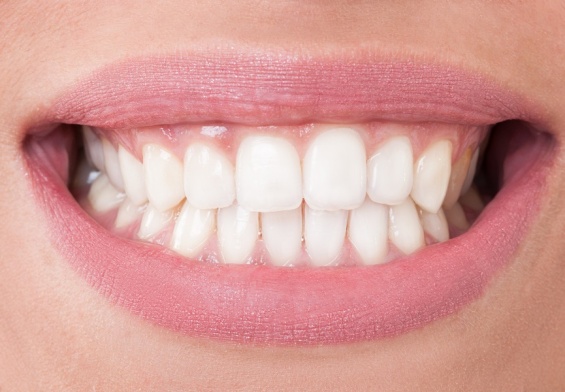Did you know that oral health impacts whole-body health? Problems in your mouth can affect the rest of your body. Taking good care of your mouth, teeth and gums is essential for your oral health. Good oral and dental hygiene can help prevent bad breath, tooth decay and gun disease – and can help you keep your teeth as you get older.
A healthy mouth may also help you ward off medical disorders. An unhealthy mouth, especially if you have gum disease, may increase your risk of serious health problems such as heart attack, stroke, poorly controlled diabetes and preterm labor. Therefore, it’s important that you understand oral health and its connection to your overall health.
The Connection Between Oral Health and Overall Health
Your mouth is teeming with bacteria, like many areas of the body – but most of them are harmless. The body’s natural defenses and good oral health care, such as daily brushing and flossing, can keep these bacteria under control. However, without the right oral hygiene, bacteria can reach levels that might lead to oral infections, such as tooth decay and gum disease. Additionally, certain medication – such as decongestants, antihistamines, painkillers, diuretics and antidepressants – can reduce saliva flow. Saliva washes away food and neutralizes acids produced by bacteria in the mouth, helping to protect you from microbial invasion or overgrowth that might lead to disease.
Scheduling Regular Dental Appointments
Keeping your teeth healthy with regular dental visits is important. When teeth start to have problems, they impact life quickly. Catching a dental problem early may help reduce the amount of pain, difficulty, and cost to fix the problem. Dentists can also look for signs of oral cancers, and spot signs of other health conditions.
Conditions That May Be Linked to Oral Health
Diabetes – The relationship between diabetes and periodontitis may be the strongest of all connections between the mouth and the body. Inflammation that starts in the mouth seems to weaken the body’s ability to control blood sugar. People diabetes have trouble processing sugar because of a lack of insulin, the hormone that converts sugar into energy. Periodontal disease further complicates diabetes because the inflammation impairs the body’s ability to utilize insulin. High blood sugar provides ideal conditions for infection to grow, including gum infections.
Heart Disease – Gum disease and heart disease go hand in hand. Up to 91% of patients with heart disease have periodontitis, compared to 66% of people with no heart disease. The two conditions have several risk factors in common, such as smoking, unhealthy diet, and excess weight, and some suspect that periodontitis has a direct role in raising the risk of heart disease. Inflammation in the mouth causes inflammation in the blood vessels, which can increase the risk of a heart attack. Inflamed blood vessels allow less blood to travel between the heart and the rest of the body, raising blood pressure.
Pregnancy – Periodontitis has been linked to premature birth and low birth weight. Infection and inflammation in general seem to interfere with a fetus’ development in the womb.
Osteoporosis – This condition causes bones to become weak and brittle and might be linked with periodontal bone loss and tooth loss. Osteoporosis affects the long bones in the arms and legs, whereas gum disease attacks the jawbone.
Endocarditis – An infection of the inner lining of your heart. Endocarditis typically occurs when bacteria or other germs from another part of your body, such as your mouth, spread through your bloodstream and attach to damaged areas in your heart.
HIV/AIDS – Oral problems, such as painful mucosal lesions, are common in people who have HIV/AIDS.
Alzheimer’s Disease – Worsening oral health is seen as Alzheimer’s disease progresses.
Other conditions that might be linked to oral health include eating disorders, rheumatoid arthritis, head and neck cancers, and Sjorgen’s syndrome – an immune system disorder that causes dry mouth.
Your Mouth is an Infection Source
When you don’t brush and floss regularly to keep your teeth clean can cause plaque to build up along your gumline, creating an environment for additional bacteria to accumulate in the space between your gums and your teeth. This gum infection is known as gingivitis. Gingivitis can lead to periodontitis (more serious gum infection). Bacteria from your mouth normally don’t enter your bloodstream. However, invasive dental treatments, even just routine brushing and flossing if you have gum disease, can provide a port of entry for these microbes.
If your immune system is weakened, because of a disease or cancer treatment, oral bacteria in your bloodstream may cause you to develop an infection in another part of your body. However, if you have a healthy immune system, your immune system quickly dispenses with them, causing no problems and prevent infection.
Protecting Your Oral Health
To protect your oral health, practice good oral hygiene every day. Here is how to do so:
- Brush your teeth at least twice a day with fluoride toothpaste.
- Floss daily.
- Eat a healthy diet and limit between-meal snacks.
- Replace your toothbrush every three to four months or sooner if bristles are frayed.
- Schedule regular dental checkups and cleanings.
- Avoid tobacco use.




